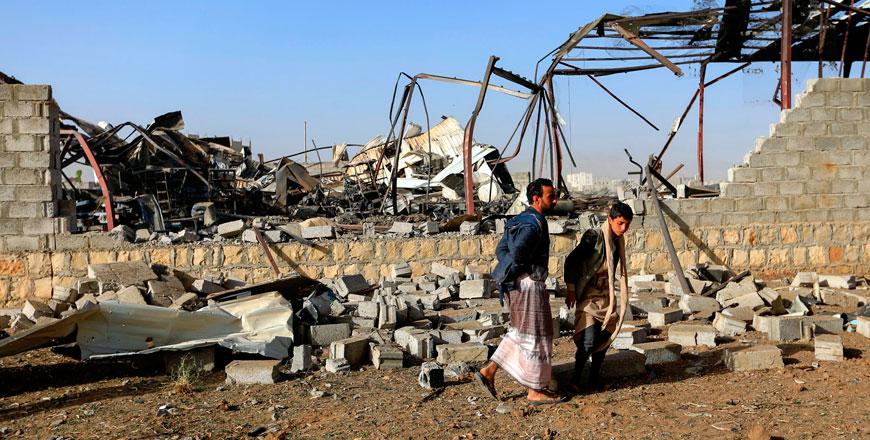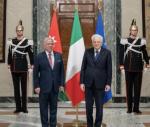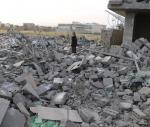You are here
Yemen prisoner swap terms expected in coming days, government delegate says
By Reuters - Jan 23,2019 - Last updated at Jan 23,2019

Civilians inspect the damage at a factory after a reported air strike by Saudi-led coalition in the Yemeni capital Sanaa, on Sunday (AFP photo)
ADEN — Yemen’s warring parties are expected to agree on the terms of a prisoner exchange in around 10 days, a representative of the internationally recognised Yemeni government said on Wednesday.
Talks between the two sides took place in Jordan last week. Both parties need to agree on lists of prisoners to be swapped.
‘‘We expect that in 10 days time the final signing will have happened,’’ the head of the government delegation to the prisoner-exchange talks, Hadi Haig, told Reuters, by telephone.
The United Nations is pushing for the exchange and a peace deal in Yemen’s main port, Hodeida. That could open the way for more talks between the Iran-aligned Houthi movement and the Saudi-backed government on ending the country’s civil war.
The swap was one of the least contentious confidence-building measures at December’s UN-sponsored peace talks in Sweden, held amid Western pressure to end the conflict. The fighting has lasted nearly four years, killed tens of thousands and brought 10 million people to the brink of famine.
The International Committee of the Red Cross (ICRC) said on Wednesday that it hopes to see ‘‘progress in the coming days’’ and urged the warring parties not to let the opportunity slip away.
‘‘This is a crucial moment for the people of Yemen,’’ ICRC regional director, Fabrizio Carboni, said in a statement issued at a press conference in the Houthi-held capital, Sanaa.
The ICRC said it was preparing for the swap by increasing staff numbers and arranging medical support. It was also preparing two planes to carry detainees between Sanaa and Sayoun, a town under the control of the Hadi government.
The conflict pits the Houthis against Yemeni forces backed by a Sunni Muslim coalition, which are trying to restore the government of Abed Rabbo Mansour Hadi. Hadi was ousted from power in late 2014 when the Houthis seized Sanaa.
The conflict began after pro-democracy unrest forced the former president, the late Ali Abdullah Saleh, to step down in 2012. Hadi was elected to a two-year term to head a transitional government, but the Houthis drove him into exile, prompting the coalition to intervene in Yemen in 2015.
The conflict is widely seen in the region as a proxy war between Saudi Arabia and Iran. The Houthis deny receiving help from Iran, and say their revolution is against corruption.
Related Articles
DUBAI — The Saudi-led coalition fighting in Yemen released seven Houthi rebel prisoners on Wednesday and returned them to Sanaa, the United
DUBAI — Yemen's warring sides will meet in Geneva on Thursday for UN-sponsored talks on the final touches of a deal to release more than 1,4
UNITED NATIONS, United States — An exchange of thousands of prisoners between Yemen's Saudi-backed government and Houthi rebels hangs i

















